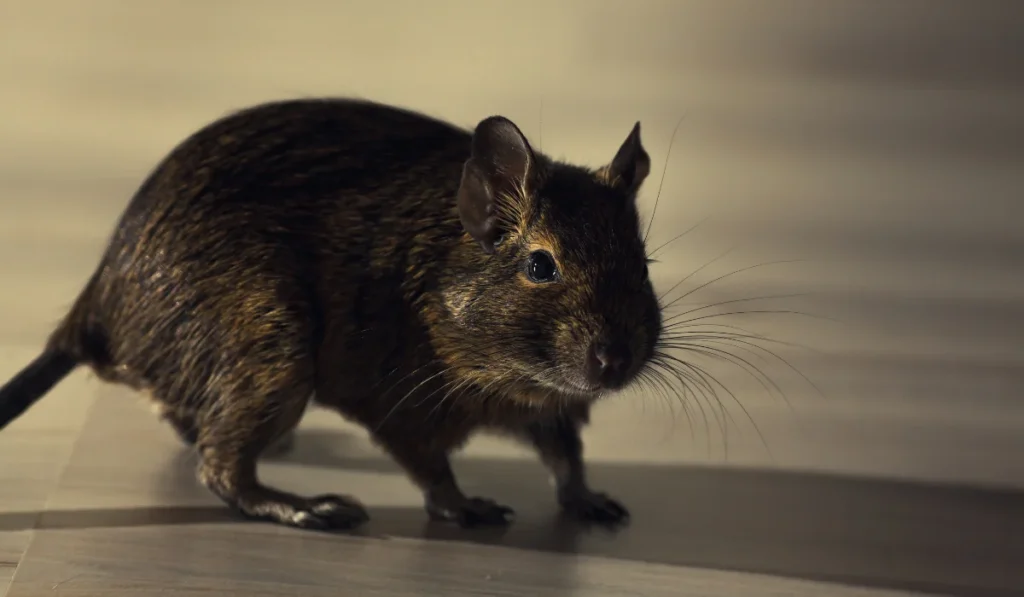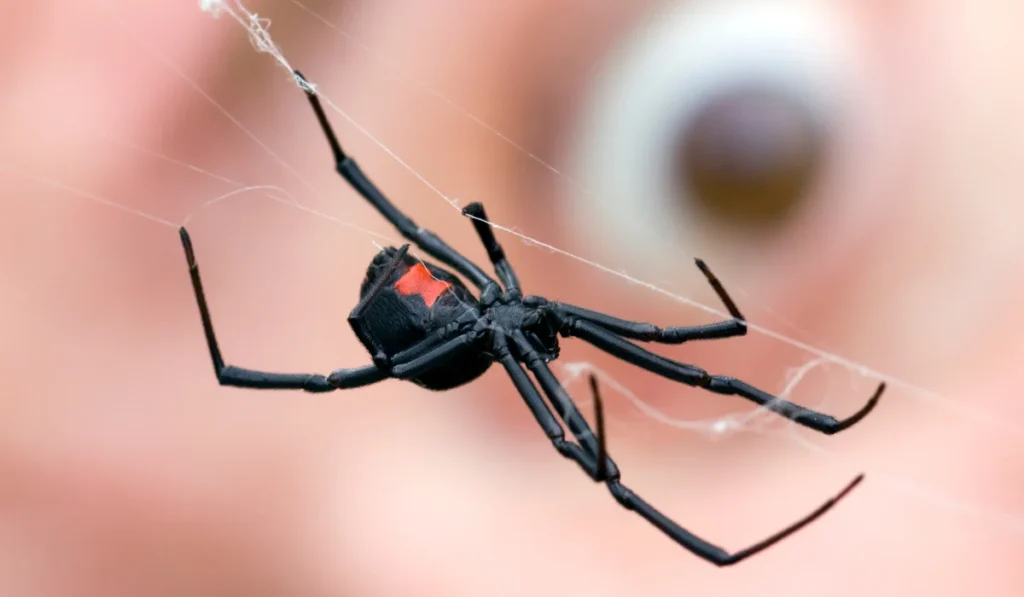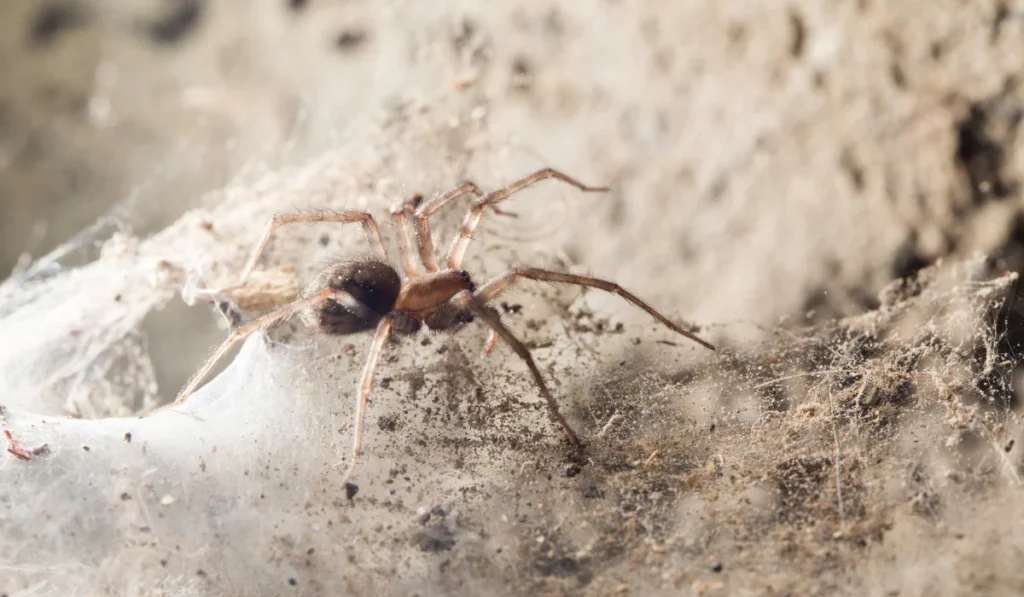
When you see a spider in your Madison, AL, home, you probably want to know what kind it is. Because North Alabama is warm and humid, many spiders live here. Some stay outside, while others wander indoors in search of food, shelter, or quiet places to hide.
Most spiders in Alabama are harmless and rarely bother people. But Madison and nearby Huntsville do have a few venomous spiders to watch out for, making spider control in Madison, AL, an essential local service for homeowners.
In this guide, we cover the most common spiders in Madison, including harmless kinds, outdoor web builders, hunters like the wolf spider, and venomous species that need attention. We also show how professional pest control helps keep them out of your home.
Key Takeaways
- Madison and Huntsville both have both harmless and venomous spiders, including the brown recluse and black widow spiders.
- Many spiders hide in basements, attics, garages, and crawl spaces because these are quiet and have insects to feed on.
- Strong web builders like the orb weaver and the yellow garden spider help reduce outdoor pest populations.
- A year-round pest control plan can reduce infestations and help keep your home spider-free.
Common Indoor Spider Species In Madison, AL
You may see several spider species inside Madison homes year-round. Most are harmless and come inside to hunt insects. They hide in corners, storage rooms, and other dark spots where bugs are active.
Common House Spider

The common house spider builds webs in corners, closets, and storage rooms. Their long legs and small bodies make them easy to recognize. They prefer basements, attics, and quiet rooms where they can build webs without being disturbed.
If common house spiders keep showing up, other insects are likely active as well.
Cellar Spider
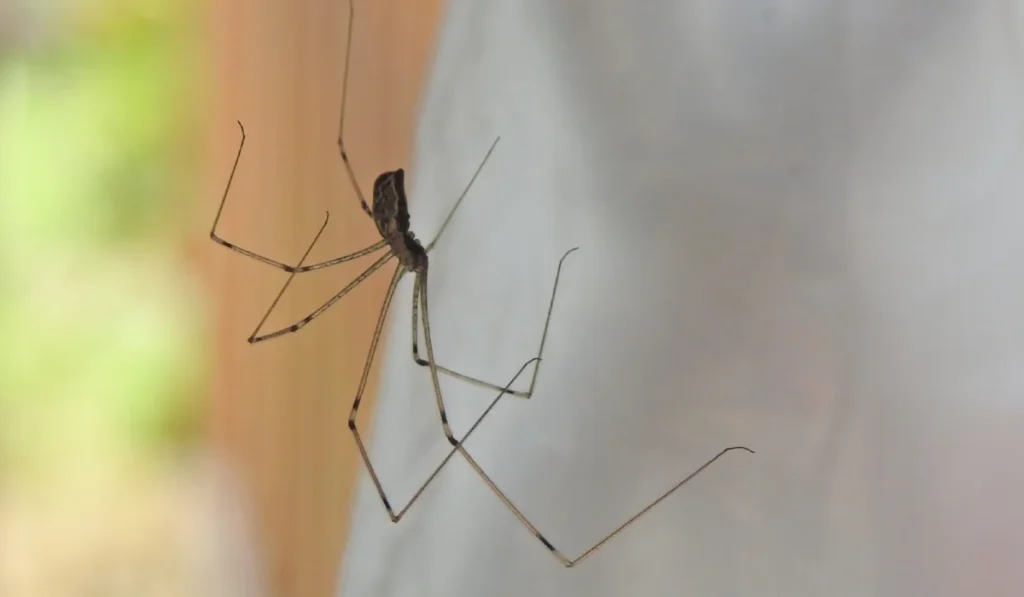
The cellar spider has extra-long legs and builds messy webs in damp places. You’ll often see them in basements, garages, and crawl spaces. They are harmless and rarely bite. If cellar spiders are increasing, it may be time for an inspection.
Southern House Spider
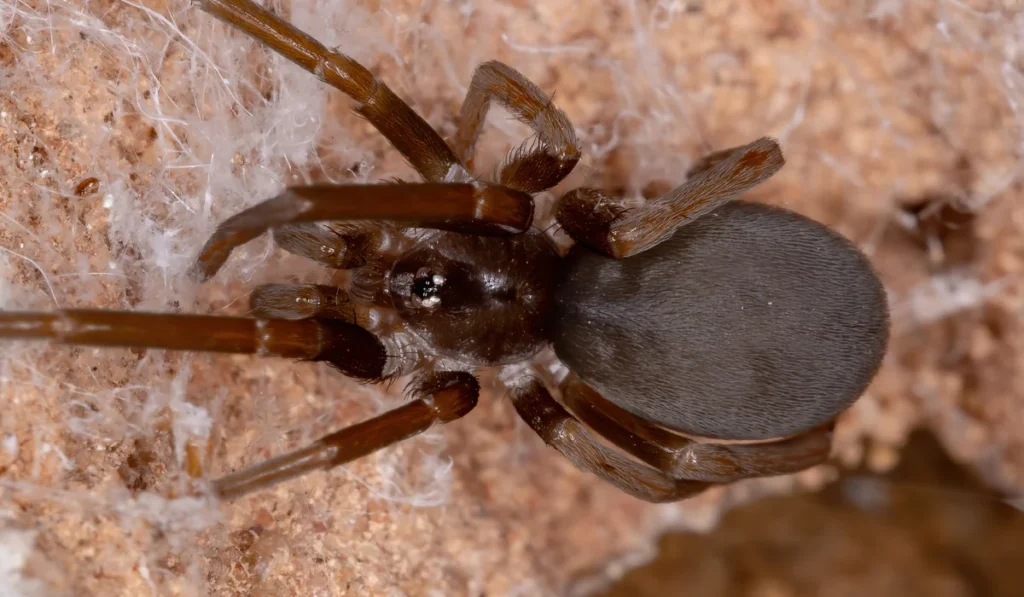
The southern house spider is often mistaken for a brown recluse, but it is harmless. It hides in cracks, window frames, and small gaps near porches. It may come inside when insects are active.
Jumping Spider
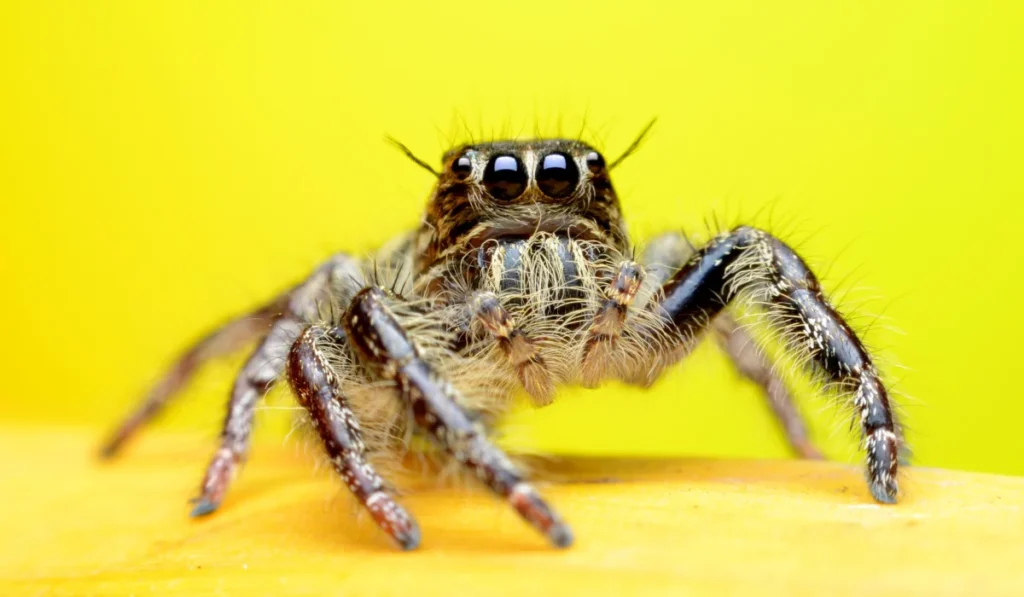
The jumping spider is small, quick, and active during the day. It has a compact body and sharp vision. Insects in your home attract them. They do not build large webs; instead, they stalk insects on windowsills, porches, and sunny spots.
Home Spider
Some people call any indoor spider a “home spider,” but there are many kinds. Proper ID tells you what you’re dealing with and whether you need help. If indoor spiders keep showing up, insects or moisture are likely the cause.
Outdoor Web-Building Spiders In North Alabama
Madison yards attract many web-building spiders. They help cut insects and usually stay outdoors unless food pulls them closer to the house.
Orb Weaver
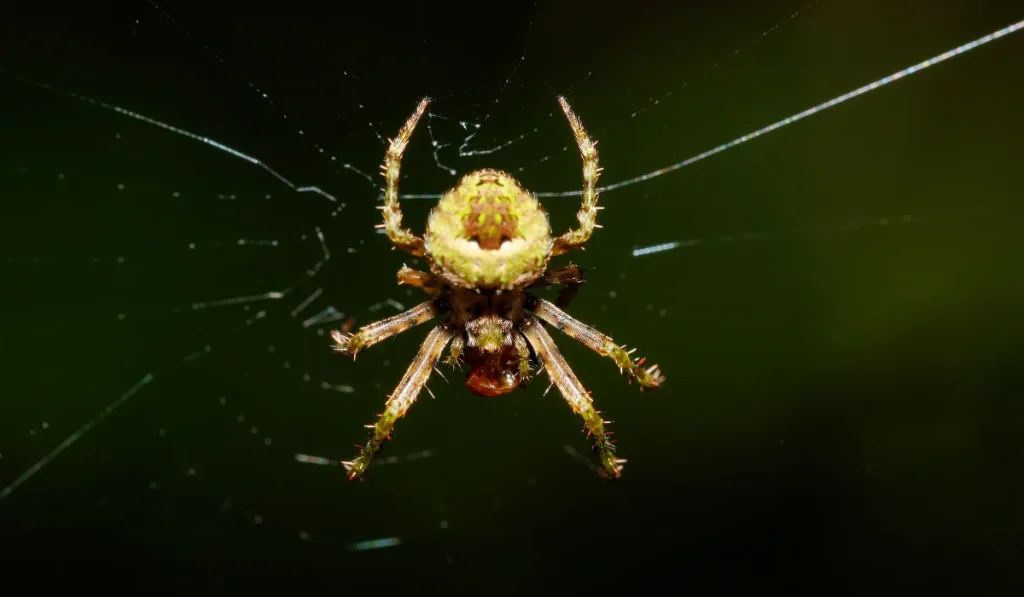
The orb weaver is common in Alabama. They build large, round webs across bushes, porches, and fence lines. Species include the yellow garden spider and the marbled orbweaver.
Crab Spider
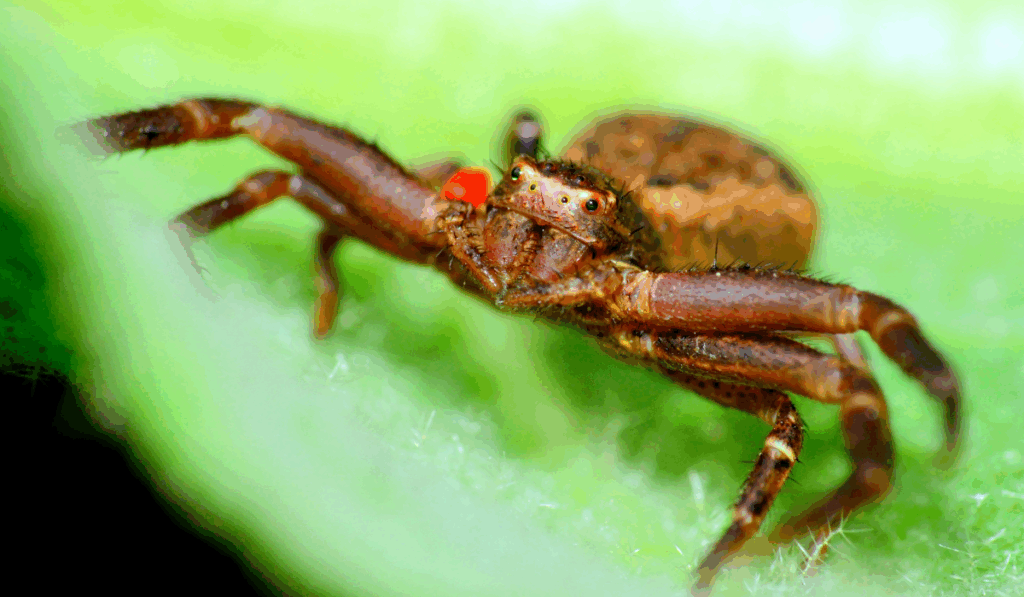
The crab spider waits on flowers and shrubs and can move sideways like a crab. They rarely come indoors unless carried in on plants.
Grass Spider
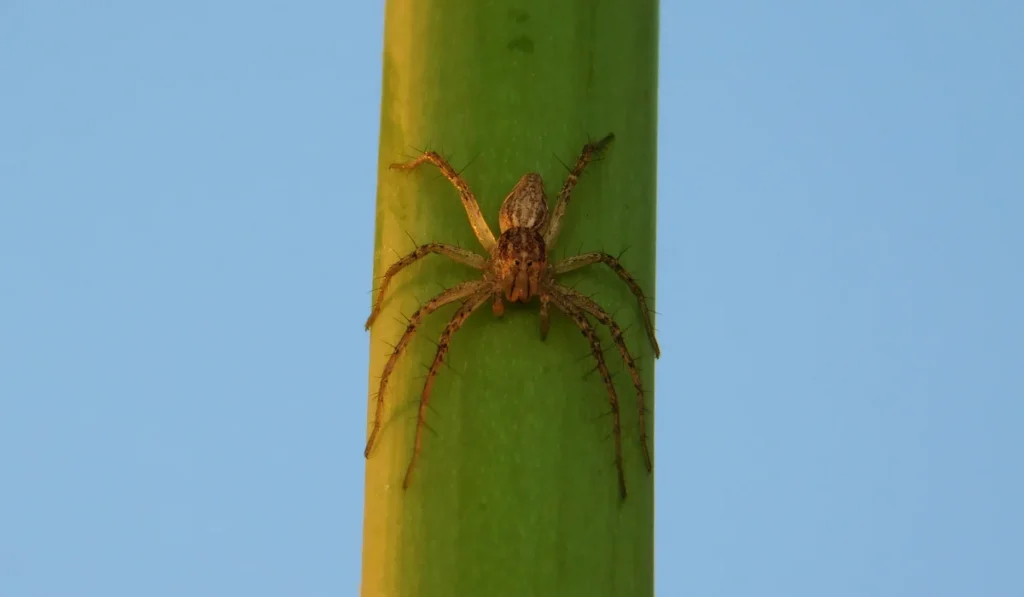
The grass spider builds a sheet-like web with a funnel at one end. You may see these webs across your yard in the morning. Grass spiders move fast and avoid contact. If they gather near walkways or porches, a pest reduction plan can help.
Green Lynx Spider

The green lynx spider is bright green and common around shrubs and gardens. They hunt insects and rarely come inside. If you see them around porches or windows, our team can reduce the sources of attraction that draw them.
Cobweb Spider and Green Jumper

You may also see cobweb spiders, also known as green jumpers, outdoors. These are harmless and help reduce insect populations.
Venomous Spiders In Madison
Brown Recluse Spider

Its scientific name, Loxosceles reclusa, reflects its tendency to stay hidden and is known for a distinct violin-shaped marking on its back. Knowing the differences between wolf spiders and brown recluses is helpful and lowers worry. Wolf spiders move fast and look big, but they are harmless and avoid people.
Effects of a Brown Recluse Bite
A brown recluse bite may start as a small red spot that feels warm or tender. Hours later, the skin can darken or form a blister.
In some cases, the skin may break down into an open sore. Bites vary, so seek medical attention if you’re worried. Recluses rarely bite unless pressed against the skin, such as inside clothing or bedding.
Because brown recluse spiders can be risky to handle, call a trained professional.
Black Widow Spider

The black widow spider is easy to spot by its shiny black body and the red hourglass marking on the underside. North Alabama also has the southern black widow and the lighter brown widow. Widows like dark spots such as sheds, crawl spaces, porches, and woodpiles, where they stash egg sacs in protected corners.
Effects of a Black Widow Bite
A black widow bite may feel like a pinprick or go unnoticed. Within an hour, symptoms can include muscle cramps, chest or stomach tightness, sweating, and nausea. Pain may spread from the bite. These symptoms are treatable. Children, older adults, and people with health issues may react more strongly and should seek medical care.
Widows bite when cornered, often when someone reaches into a dark space without seeing a web. A pest control professional can remove widows and reduce their hiding spots.
Hunting Spiders That Wander Indoors
Some spiders do not build permanent webs. Instead, they move around your home or yard looking for food.
Wolf Spider
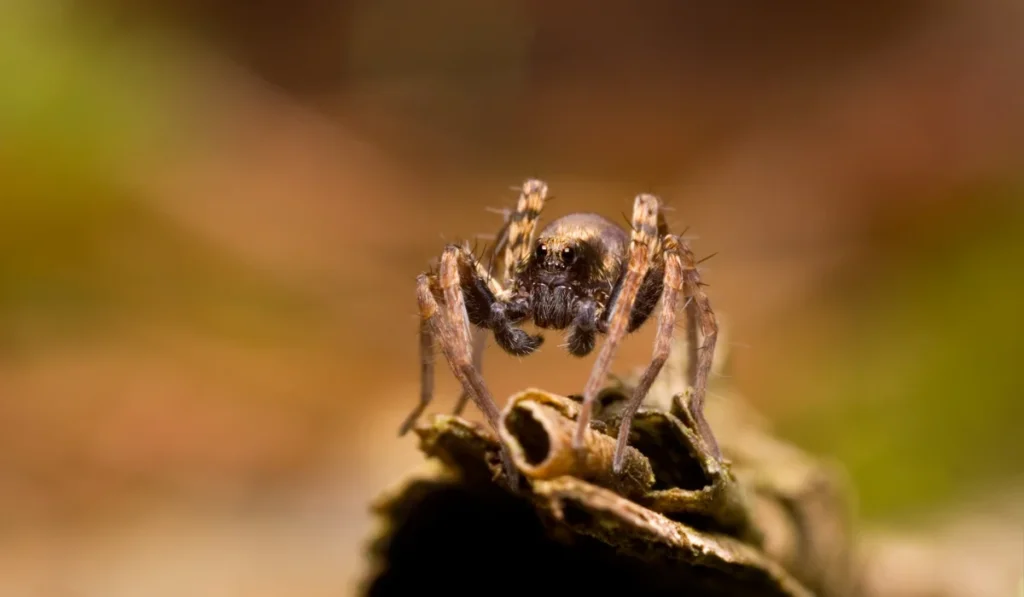
The wolf spider is one of the most common spiders in Alabama. They move quickly and may enter through small gaps. Wolf spiders rarely bite unless trapped. If wolf spiders keep appearing, insects are active.
Fishing Spider

The fishing spider lives near lakes, ponds, and damp areas. Moisture or insects can draw them to homes. Madison neighborhoods near water may see them in garages or basements.
Why Spiders Enter Alabama Homes
Spiders enter homes for simple reasons: shelter, food, and undisturbed space. Homes with insects or clutter provide spiders with plenty of hiding places.
During long stretches of wet weather, insects move indoors to escape the moisture, bringing spiders with them. Adding moisture control, sealing small gaps and entry points, and using routine pest treatments can help keep spiders out of your home during Alabama’s rainy season.
Common attractants include:
- Damp crawl spaces or basements
- Cluttered storage areas
- Gaps around doors and windows
- Firewood or woodpiles stacked near the house
- Insect infestations
Our team can help you find these issues and create a treatment plan.
Making The Right Spider Control Choice For Your Alabama Home
Knowing the types of spiders in Madison can help you understand which ones are harmless and which ones need attention. If you’re seeing spiders often, finding webs, or worrying about possible venomous species, professional help can make a big difference.
At Magic City Pest Control, we serve homeowners across Madison, Huntsville, and North Alabama with reliable pest control services that target insects and spiders together.
If you want a spider-free home, contact us today to get a free quote.
FAQs
What Attracts Spiders Inside?
Spiders come inside in search of food or shelter. If insects are active indoors, spiders will follow. Moisture and clutter make hiding easier. Sealing small openings also helps limit indoor movement.
Are Brown Recluse Spiders Common In Alabama?
Yes. Brown recluse spiders live across Alabama, especially in Madison and Huntsville. They prefer undisturbed areas, such as closets and attics. While brown recluse spider bites are rare, you should still take them seriously.
How Can I Keep My Home Spider-Free?
Reduce clutter, seal cracks, store firewood away from the home, and keep insects under control. A year-round pest control plan is the most effective way to lower indoor spider activity.







